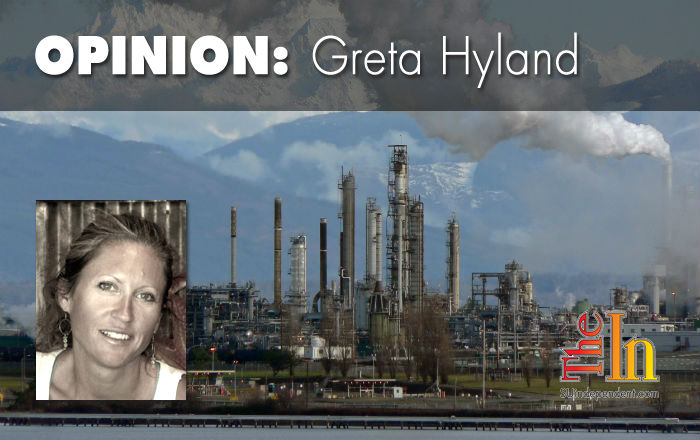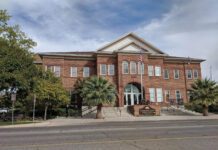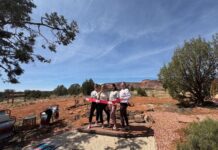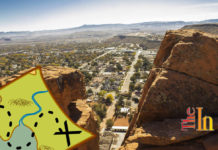 Written by Greta Hyland
Written by Greta HylandUtah politicians have a thinly veiled political Ponzi scheme going on whereby they decry the federal government’s over-sight in the state for constituents and lobbyists, but have their hand out for federal money behind the scenes. Politically, it’s a winner, both in votes and in dollars – but it looks like biting the hand that feeds them to anyone who is paying attention.
This political charade is dubbed “Home Rule.” What that means is that Utahns want federal help without any federal regulation; or put another way, they want to have their cake and eat it too. While I am certain Utah is not the only state to do this, I would wager it is the loudest and most vocal, with the architect of the ‘Transfer of Public Lands Act’ Ken Ivory and other like-minded politicians, claiming public land should be transferred to the state.
Of course the reason behind this argument to take over public lands is money. Utah is watching North Dakota’s Bakken Oil Field enviously because Utah is a mineral rich state. The only thing standing in their way is the federal government’s management of those lands. And no one is going to argue with more jobs or more money. But what you don’t know is that crime, prostitution, and pollution come in the wake of economic booms like that and furthermore, once the resource is gone, the towns go bust and the companies leave.
Ironically enough, however, some interesting news has come out in the last few weeks that highlight and put into question the attempts by Utah politicians to have it both ways. First, the state auditor released the annual audit report revealing that federal funding is Utah’s “single largest source of revenue.” For a state that collectively hates government intrusion, they sure like the handouts.
Second, Utah was named the best state for RV’ing by Trailer Life Magazine’s Reader’s Choice Awards. What that means is that Utah makes a lot of money, roughly $6 billion annually, from tourism and recreation, largely driven by five national parks, seven national monuments, two national recreation areas and one national historic site – or in other words, Utah makes a lot of money from public land managed by none other than the federal government.
When you are the loudest voice in opposition to everything from taxes, to federal management of public land, yet literally survive off of those very things, it looks pretty bad.
Utah gets federal funding for roads, universities, land, public works projects, and a host of other things, and yet continues to play politics with this cash cow, gambling that those dollars will always be there. But if Utah gets the public land and then can’t handle managing it, I’m sure it would still turn to the feds for help. I’m just not sure the federal government, and by proxy the American taxpayers, would be so inclined to help.
The Governor just got the study results from the report required by the Transfer of Public Lands Act to determine whether or not it is feasible for Utah to manage public land. While the report did say it was feasible, there were contingencies. The study found that in order to raise needed funds to manage public land Utah would need to purse “an aggressive approach to managing its mineral lease program,” that would only “be profitable for the state if oil and gas prices remain stable and high.”
You caught that right? Utah needs high gas prices. But gas prices are dropping and have been since June. And not by a little bit. We’re talking about a nearly 48 percent drop– set to be the largest annual drop since 2008. And yet, Utah is still has the 9th highest gas prices in the nation, with Vernal ranking highest in the state – and all that despite them telling us that if we drill here, 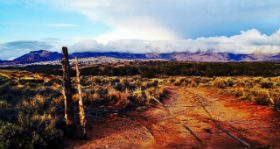 gas prices will drop. Whether you like it or not, this might be a glimpse at what the future holds if Utah politicians get their way.
gas prices will drop. Whether you like it or not, this might be a glimpse at what the future holds if Utah politicians get their way.
Furthermore, an increase in one sector means decreases in others. Tourism and recreation will nose dive if the fossil fuel industry is aggressively pushed across the state because it is the very antithesis to what makes recreation and tourism alluring. But ultimately, that is what it will take for Utah to be financially capable of managing those lands, and that is the price Utahns will pay.
Just look at Vernal for a small example of what may come. People in the industry are making good money, but local people are being priced out of the town by rising costs of living. For example, teachers don’t make more money, but they still have to pay the increased prices of real estate, food, etc. There are pluses and minuses to everything, but we have to ask ourselves if the trade-off is worth it.
In all of this political show-boating, you will never hear politicians talk about the costs associated with their grand plans – the costs of managing the land, the costs of pollution and contamination, or the healthcare costs that will accompany the pollution, contamination, and lost work days to sickness – or the increased cost of living that accompanies such booms.
And they certainly won’t talk about the revenues, jobs, or local economies that will go bust with lost tourism and recreation either. The reason they intentionally avoid talking about these costs is that they will pay. They will pay at the ballot box, in their own pocket books, and it will hurt badly enough in the short term to make better long term decisions politically unthinkable.
Home Rule works for Utah politicians because it is politically expedient and financially profitable. Explaining the perks of a federal government or the costs of their own plans, upsets constituents and leads them to ask uncomfortable questions, and demand better decisions. In other words, they will lose political support and momentum – and they will probably lose lobbying dollars from firms uncertain if they will be successful.
All that being said, the only ones hurt by this phony double standard are us. Politicians are in positions where they and their friends profit from the laws they pass and the decisions they make and by the time the effects of their decisions roll around, they are out of office and enjoying the good life. It’s the long term effects we need to weigh when lending support to politicians, especially when the carrot they dangle in front of us is the economy.
I’m all for states acting as a check against an over-bearing federal government. We need it. However, let’s make sure it is a legitimate check against something that really should be challenged. Furthermore, who is checking our state and local governments? If we don’t, we will be the ones to pay, and we will have no one to blame but ourselves. It is time we learn that nothing is free, whether it is federal money and the regulations that come with it, or state management and the costs that come with that.
Related Stories: Utah voted best state for RVing
Federal Funding Utah’s largest source of revenue
Greta Hyland has a Masters degree in Environmental Policy & Management and has worked for the BLM and the NPS as well as for non-profit organizations. She is a regular contributor to the Utah Adventure Journal and is the Copy Editor at the Independent. She writes regularly on her blog about environmental policy issues affecting the southwest, as well as personal narratives about outdoor recreation and simple living. Her blog can be found at www.thesouthwestjournal.wordpress.com A Utah native, Greta is a consummate desert rat and loves exploring the southwest. She can be reached at [email protected].

